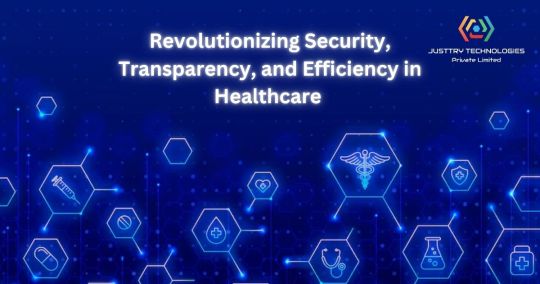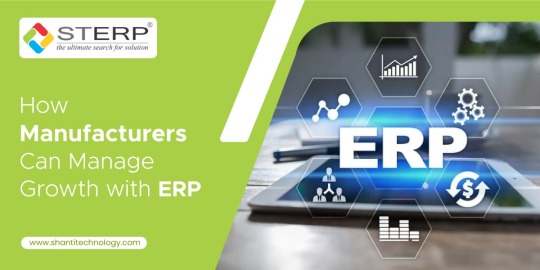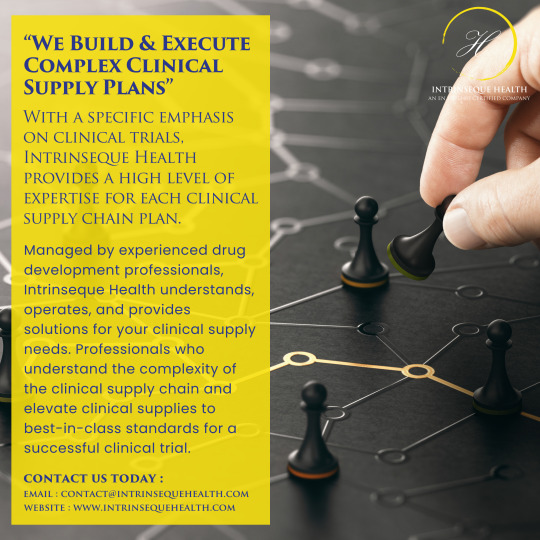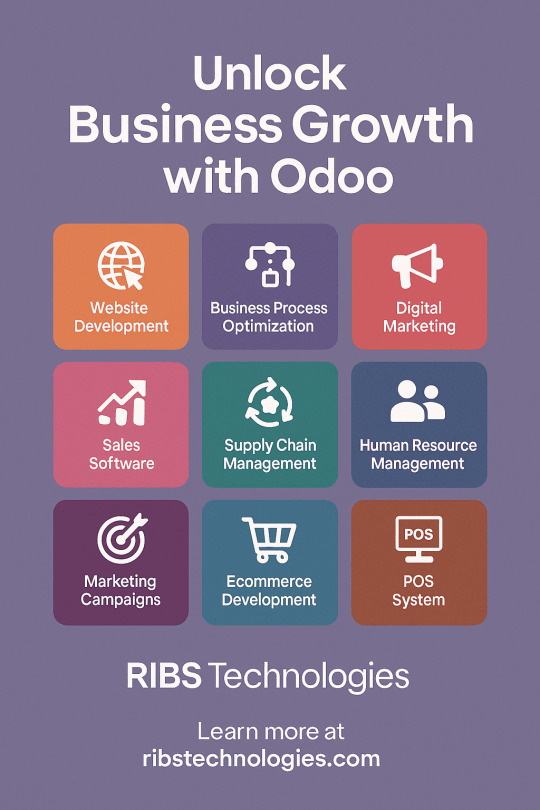#supply chain development
Explore tagged Tumblr posts
Text
Securing the Supply Chain - Nadcab Labs Blockchain Innovations

In the complex world of logistics, moving a product from supplier to customer involves numerous stakeholders, intricate processes, and substantial information exchange. This system, while pivotal, faces persistent challenges like lack of transparency, traceability, and efficiency. Nadcab Labs, a leading Supply Chain Development Company, is revolutionizing this space with their innovative blockchain technology to enhance transparency, authenticity, and tracking while reducing costs and increasing customer satisfaction.
The Urgent Need for Enhanced Supply Chain Transparency
One of the most pressing issues in traditional supply chain management is transparency. As products pass through various stages, crucial information often gets obscured or lost, creating opportunities for fraud and inefficiencies. Nadcab Labs addresses this problem head-on with their Blockchain Supply Chain Solutions, which ensure that data once entered into the blockchain becomes immutable and transparent to all parties involved.
Battling Product Forgery with Blockchain
Authenticity is another significant concern in the supply chain process. Product forgery not only leads to revenue loss but also damages brand reputation. Traditional methods have fallen short in tackling this issue effectively. Nadcab Labs’ blockchain solution offers a unique advantage here; by assigning a distinct digital identifier to each product at the start of its journey, the solution guarantees that the item's authenticity is verifiable at every step.
Streamlining Tracking and Inventory Management
Tracking goods as they move through the supply chain is a daunting task. Items can get misplaced or lost, leading to customer dissatisfaction and increased operational costs. Similarly, maintaining accurate inventory records has been a longstanding challenge. Nadcab Labs leverages blockchain technology to provide real-time tracking and accurate inventory data, which are readily accessible and verifiable by all stakeholders in the supply chain.
How Nadcab Labs' Blockchain Solutions Overcome Supply Chain Hurdles
The introduction of a shared digital ledger by Nadcab Labs eliminates many of the frictions traditionally associated with the supply chain. Once information about goods is recorded on the blockchain, it provides a single source of truth accessible to suppliers, logistics providers, and customers alike. This level of accessibility not only enhances transparency but also significantly boosts processing speed and reduces discrepancies in inventory.
Moreover, the immutable nature of blockchain ensures that once information is logged, it cannot be altered or forged, thus providing a reliable and secure framework for supply chain operations. This technology also facilitates the genuine identification of products, reducing the risk of counterfeit goods entering the supply chain.
Conclusion
As a Supply Chain Software Development pioneer, Nadcab Labs is at the forefront of deploying blockchain technology to streamline supply chain processes. Their solutions are designed to tackle the biggest challenges in supply chain management—transparency, authenticity, tracking, and inventory management. By integrating blockchain into the supply chain, Nadcab Labs not only enhances operational efficiency but also significantly improves customer satisfaction and trust in supply chain processes. Businesses looking to optimize their supply chain operations would do well to consider the robust and innovative solutions offered by Nadcab Labs.
Twitter — twitter.com/nadcablabs
LinkedIn — linkedin.com/company/nadcablabs
Facebook — facebook.com/nadcablabs
Instagram — instagram.com/nadcablabs
Spotify — spotify.com/nadcablabs
YouTube — www.youtube.com/@nadcablabs
#nadcablabs#blockchain#nadcab labs services#Supply Chain Development#Blockchain Supply Chain Solutions#Supply Chain Development Company#Supply Chain Software Development
0 notes
Link
India’s inclusion in the recent global iPhone 15 launch, aligns with Apple’s victory in the country. iPhones now debut simultaneously in India with other major markets, reducing unauthorized sales and boosting consumer trust through official channels.
#geopolitical factors#political stability#supply chain#make in india#innovation#increased competition#easeofdoingbusiness#ease of doing business#supply chain development#consumer perception#intellectual property challenges#market dynamics#brand loyalty#Global iPhone Launch#@apple#@applesupport#iphone launch#atmanirbhar bharat#@applesupportcommunities-blog#atmanirbhar india#automation#technology#eodb#government initiatives#atmanirbharbharat#innovation unleashed#indian culture#indian market#startup business#big business
0 notes
Text
HOW BLOCKCHAIN AND SUPPLY CHAIN MANAGEMENT INTEGERATION OVERCOMES PRESENT CHALLENGES?
If there is a web that runs global commerce by connecting manufacturers to customers via suppliers, distributors, and retailers, then that web is none other than the supply chain. This article will tell you how blockchain and supply chain management is an innovation to overcome present challenges.
Every product that we use today is a result of effective supply chain management. It has the potential to determine market demand, thereby fluctuating the price of a product. But supply chain management is far from perfect. Here are a few main reasons. Read more
0 notes
Text
The 6 Roles of Blockchain Technology in Pharma’s Future

Introduction
The pharmaceutical industry is undergoing a digital transformation, and blockchain technology is at the forefront of this revolution. Traditional challenges such as counterfeit drugs, regulatory inefficiencies, clinical trial fraud, and data breaches have long plagued the sector. Blockchain, with its decentralized and tamper-proof nature, offers solutions that can enhance security, transparency, and operational efficiency.
As blockchain development service providers continue refining solutions for pharma, companies are beginning to adopt this technology to streamline supply chains, enhance patient data security, and automate compliance. This article explores six critical roles that blockchain will play in shaping the future of the pharmaceutical industry.
1. Securing the Pharmaceutical Supply Chain
Eliminating Counterfeit Drugs
Counterfeit medications pose a significant threat to global health, contributing to thousands of deaths annually. The World Health Organization (WHO) estimates that one in ten medical products in low- and middle-income countries is substandard or falsified.
End-to-End Traceability
Blockchain technology enables a fully transparent supply chain, where each transaction is recorded in an immutable ledger. This ensures that every stakeholder—from manufacturers to pharmacists—can verify a drug’s authenticity in real-time.
Real-Time Verification
With blockchain-based tracking, patients, healthcare providers, and regulatory agencies can instantly verify the legitimacy of medications. Leading pharmaceutical companies like Pfizer and Roche are already exploring blockchain to secure drug distribution and eliminate counterfeit products from the market.
2. Enhancing Drug Safety and Regulatory Compliance
Immutable Drug Records
Regulatory compliance in the pharmaceutical industry requires strict adherence to safety protocols, but traditional record-keeping methods are prone to errors and fraud. Blockchain ensures that all drug-related data, including batch numbers, manufacturing dates, and storage conditions, are permanently recorded and cannot be altered.
Automated Compliance Monitoring
Smart contracts—self-executing digital agreements stored on the blockchain—can automate compliance checks, ensuring that drugs meet safety regulations before they reach the market. This reduces human error and enhances accountability.
Rapid Recalls and Alerts
When safety concerns arise, blockchain enables instant notifications and targeted recalls. Instead of relying on slow, paper-based tracking systems, companies can pinpoint affected batches within seconds, reducing risks to patients and minimizing financial losses.
3. Revolutionizing Clinical Trials and Research
Data Integrity and Security
Clinical trials are the foundation of medical innovation, but they are often plagued by fraud and inefficiencies. Blockchain ensures that trial data is immutable, preventing manipulation or selective reporting. This guarantees transparency and fosters trust in research findings.
Streamlined Patient Consent
Informed consent is a crucial aspect of clinical trials, yet traditional methods often lack security and efficiency. Blockchain-based smart contracts can automate consent management, ensuring that patients have full control over their participation while reducing administrative burdens for researchers.
Faster Drug Development
By securely sharing trial data among researchers, pharmaceutical companies, and regulatory agencies, blockchain accelerates the drug development process. Faster access to verified data can lead to quicker approvals, ultimately bringing life-saving medications to patients sooner.
4. Enabling Secure and Efficient
Automated Payments with Smart Contracts
The pharmaceutical industry involves complex financial transactions between manufacturers, insurers, healthcare providers, and distributors. Blockchain simplifies these transactions by using smart contracts to automate payments based on pre-set conditions.
Reduced Fraud and Corruption
Traditional financial systems in the pharma sector are susceptible to fraud and inefficiencies. Blockchain’s decentralized ledger eliminates intermediaries, ensuring transparent and corruption-free transactions.
DeFi in Pharma
Decentralized finance (DeFi) applications powered by blockchain could revolutionize pharmaceutical funding. Companies can leverage tokenized assets to raise funds for research and development, bypassing traditional banking limitations.
5. Improving Patient Data Security
Decentralized Electronic Health Records (EHR)
Patient data is often stored in centralized databases, making it vulnerable to cyberattacks. Blockchain provides a decentralized and encrypted framework where patients control their health records, granting access only to authorized healthcare providers.
Seamless Data Sharing
Healthcare providers often struggle with interoperability issues, leading to treatment delays. Blockchain allows for secure, real-time data sharing across hospitals, research institutions, and insurance providers, ensuring a more efficient healthcare ecosystem.
Enhanced Privacy Protections
With data breaches on the rise, blockchain’s encryption protocols enhance patient privacy, reducing the risk of identity theft and unauthorized access to sensitive medical information.
6. The Future of Blockchain in Pharma
AI and Blockchain Integration
The combination of artificial intelligence (AI) and blockchain could further optimize drug manufacturing, predicting supply and demand trends to reduce waste and inefficiencies.
Tokenized Incentives
Blockchain could introduce tokenized rewards for patients participating in clinical trials, encouraging greater involvement and leading to more diverse research data.
Decentralized Research Collaboration
Pharmaceutical companies, universities, and biotech startups could collaborate more efficiently using blockchain-based decentralized networks. This would eliminate data silos and accelerate groundbreaking medical discoveries.
Conclusion
Blockchain technology is revolutionizing the pharmaceutical industry, offering unprecedented levels of security, efficiency, and transparency. From securing supply chains and automating compliance to enhancing patient data security and accelerating drug development, blockchain is set to become an essential pillar of the pharma ecosystem. As blockchain development service providers continue to innovate, pharmaceutical companies that embrace this technology will be better positioned to lead in an increasingly digital and decentralized future. The adoption of blockchain is not just a technological upgrade—it is a necessary evolution for a safer, more efficient, and patient-centric pharmaceutical industry.
#blockchain#blockchain development services#blockchain development#blockchain in healthcare#supply chain management#supply chain#technologies#development
2 notes
·
View notes
Text
#1. Global Politics#“2024 US Election”#“Russia Ukraine conflict”#“China Taiwan tensions”#“Israel Palestine ceasefire”#“NATO expansion”#2. Technology & Innovation#“AI advancements”#“Quantum computing breakthroughs”#“ChatGPT updates”#“5G technology”#“Electric vehicles news”#3. Climate & Environment#“Climate change summit”#“Carbon capture technology”#“Wildfires 2024”#“Renewable energy news”#“Green energy investments”#4. Business & Economy#“Stock market news”#“Global inflation rates”#“Cryptocurrency market trends”#“Tech IPOs 2024”#“Supply chain disruptions”#5. Health & Wellness#“COVID-19 variants”#“Mental health awareness”#“Vaccine development”#“Obesity treatment breakthroughs”#“Telemedicine growth”
2 notes
·
View notes
Text
How Manufacturers Can Manage Growth with ERP
Introduction:
In the dynamic landscape of manufacturing, where growth is the ultimate goal, the ability to adapt and streamline operations is paramount. Enter ERP (Enterprise Resource Planning), a powerful solution that has revolutionized the way manufacturers operate. In this blog, we'll explore the significant role of ERP software for manufacturing industry and how it serves as a catalyst for sustainable growth. Whether you're in traditional manufacturing or a software development company, ERP solutions are key to optimizing processes and managing growth effectively.

Understanding the Essence of ERP Software for Manufacturing:
1. Efficiency Unleashed:
ERP system for manufacturing industry is designed to enhance operational efficiency by integrating various business processes. From order management and procurement to production planning and inventory control, ERP systems bring together disparate functions into a unified platform, eliminating silos and enhancing overall efficiency.
2. Real-time Insights:
One of the key advantages of ERP solutions is the ability to provide real-time insights into business operations. Manufacturers can make informed decisions based on up-to-date information, helping them respond swiftly to market changes, manage resources effectively, and capitalize on growth opportunities.
3. Scalability Matters:
As a manufacturer, scalability is a constant consideration. Whether you're a growing traditional manufacturing unit or a software development company expanding its operations, ERP systems offer scalability to accommodate changing needs. The modular nature of ERP solutions allows businesses to add or modify functionalities as they evolve.
4. Improved Collaboration:
Collaboration is the bedrock of successful manufacturing. ERP fosters better communication and collaboration by providing a centralized platform where employees across different departments can access and share information seamlessly. This not only enhances teamwork but also accelerates decision-making processes.
ERP Software for Manufacturing Industry: Tailoring Solutions for Success
1. Production Planning and Scheduling:
In the manufacturing realm, effective production planning and scheduling are crucial for meeting customer demands and maintaining optimal inventory levels. ERP systems facilitate streamlined production processes, enabling manufacturers to create realistic production schedules, allocate resources efficiently, and minimize downtime.
2. Supply Chain Management:
A well-integrated supply chain is essential for manufacturers. ERP solution for the manufacturing industry ensures smooth coordination between suppliers, manufacturers, and distributors. This results in better inventory management, reduced lead times, and ultimately, improved customer satisfaction.
3. Quality Control:
Maintaining consistent product quality is non-negotiable in manufacturing. ERP solutions provide tools for comprehensive quality control by enabling real-time monitoring of production processes, tracking defects, and ensuring adherence to quality standards. This not only boosts customer confidence but also reduces wastage and rework costs.
4. Financial Management:
The financial aspect is the backbone of any business. ERP systems for manufacturing offer robust financial management capabilities, including invoicing, expense tracking, and financial reporting. This level of financial control is invaluable for manufacturers looking to manage growth effectively and make strategic financial decisions.
ERP for Software Development Company: Tailoring Solutions to Tech
1. Project Management:
For software development companies, managing projects efficiently is critical. ERP solutions designed for the software development industry offer project management modules that help track project timelines, allocate resources effectively, and ensure that development projects stay on course.
2. Resource Planning:
In the software development realm, talent is a primary resource. ERP systems tailored for software companies facilitate resource planning by providing insights into employee availability, skills, and project commitments. This ensures optimal resource allocation for project success.
3. Version Control and Collaboration:
Version control and collaboration are key aspects of software development. ERP solutions for software companies include features that enable version control, code collaboration, and documentation management. This ensures that development teams work cohesively, leading to efficient project outcomes.
4. Compliance and Security:
In the software development industry, compliance and security are paramount. ERP systems for software companies often include modules that help manage compliance with industry standards and ensure data security. This is especially crucial in an era where data protection is a top priority.
Conclusion:
As manufacturers navigate the complexities of growth, ERP software emerges as an indispensable tool for success. Whether you're in traditional manufacturing or a software development company, the benefits of ERP systems are far-reaching. From enhancing operational efficiency and providing real-time insights to tailoring solutions for specific industry needs, ERP is the key to managing growth effectively. Embrace the power of ERP, and propel your manufacturing operations into a future of streamlined processes, informed decision-making, and sustained success.
#Go-To-Market#GTM#Supply-Chain-Management#Technology#India#ERP-India#ERP#Business-Solutions#Manufacturer#Engineering#Inventory-Management#ERP Software for Manufacturing Industry#ERP System for Manufacturing Industry#ERP for Software Development Company#ERP Solutions for Manufacturing
7 notes
·
View notes
Text
Larry Savage Jr Birmingham - Logistics Communication Skills Explained
Improving your logistics communication skills is important to create a strong network of contacts and become an expert in the logistics industry. You should know this because many profit and business opportunities in the logistics industry stem from the relationships that partners and clients form.
So, to compete in the logistics industry, one must build effective communication with both potential and existing partners and customers. This article provides tips for boosting your communication skills in logistics, offering insights from logistics networking specialists. You can also read Larry Savage Birmingham – 7 Books to Read to Improve Your Communication Skills to build connections with partners for your business.

Here Are Some Tips To Improve Logistics Communication:
Pay Full Attention
Effective communication always starts with listening. Misunderstandings in communications are common with people who don’t have listening skills. All people have responsibilities, so wasting other people’s time can be bad for someone in the logistics industry.
It takes more than just physical presence to attend a logistics event. You must give your full attention in every meeting to avoid missing important details and forcing your partner to repeat information they've already said. Anyone can tell when you're not paying attention, and that's not how you should interact with current or future partners.
Practice Active Listening
You must listen actively to truly understand your logistics partner. Active listening in logistics communication requires understanding, responsive engagement, and retention of the information the other person is conveying.
Understand What’s Not Being Said
You should also be able to recognize when a prospect is lying. These are essential skills to have, and you won’t succeed until you develop the ability to read between the lines.
Speak In Specifics
You should be specific to be influential in logistics. You can prove to others that your freight forwarder is the ideal fit for his services and working style by providing concrete instances or tales to bolster your arguments.
Be A Logistics Expert
It is impossible to be particular if you do not understand what you're talking about. You should prove that you are an expert in the logistics sector and you know the issues, practices, and purchasing trends.
If you want to locate other logistics specialists who are true professionals in their freight forwarding industry, you should join a logistics network that carefully selects its members.
Know What They Don’t Know
It's not necessary to know everything about the logistics industry to be considered an expert. But you should be knowledgeable enough to manage the cargoes of your partners, have excellent assistance, and be an outstanding operator. You should also need to depend on your prospects to provide the missing information.
Recognize your knowledge gaps and ask your logistics partner to assist you in filling them in. You won't lose transactions due to erroneous assumptions; they will respect your candor about what you don't know.
Final Thoughts
As you can see, there are many ways via which honing your logistics communication skills can assist you in creating beneficial relationships for your enterprise. Finally, read Larry Savage Jr. Birmingham- 7 Skills That Can Help You Become an Expert Logistics Specialist if you want to become a master of logistics.
#larry savage jr#larry savage jr birmingham#logistics business#logistics expert#entrepreneurial success#logistics professionals#transportation#proficient in logistics#Logistics Specialist#logistics networking specialists#artificial intelligence#supply chain management#business#business development
2 notes
·
View notes
Text

Intrinseque Health - Clinical Supply Chain We Build and Execute Complex Clinical Supply Plans
Intrinseque Health is an EN ISO 13485 Certified Global clinical trial support services provider committed to the utmost in service delivery to drug development organizations (Pharmaceutical, Biotechnology, Medical Device & Contract Research Organizations (CROs)). Our team of industry professionals has over 300 years of combined experience supporting global clinical trials across a wide array of therapeutic areas. This vast experience enables us to empathize with our Customers while providing best-in-class solutions to overcome the hurdles and pain-points of conducting a clinical trial.
Regions & countries throughout the world will often present a unique set of regulatory and logistical challenges. It is our responsibility to understand and overcome these while ensuring that your products, supplies, equipment and services are available where needed to ensure study timelines are met. Intrinseque Health utilizes an operational methodology that is based on proven, cost-effective clinical supply chain strategy for each clinical trial. Our practice is to engage with our customers, early and often to ensure implementation of a robust clinical supply plan, resulting in the most successful study start-up and initiation.
#clinical supply#clinical trials#health#healthcare#supplychainmanagement#clinical supply chain#clinical supply chain management#drug development
2 notes
·
View notes
Text
Unlock Business Growth with Odoo’s All-in-One Solutions
In today’s fast-moving digital world, companies need flexible tools to manage every part of their business. That’s where Odoo comes in. As a leading Odoo website development company, RIBS Technologies delivers powerful, custom-built solutions for businesses in the UAE and beyond.

#odoo website development company#odoo website development services#odoo supply chain#odoo digital marketing
0 notes
Text
Why Businesses Should Adopt Blockchain Technology in 2025
Discover how blockchain is transforming business in 2025—from enhanced security to smart contract automation. Partner with Theta Technolabs, a top blockchain development company in Dallas.
#Blockchain solutions#Technology#Blockchain development company#Blockchain security solutions#Blockchain in supply chain#Decentralized business systems
0 notes
Text
FourKites Expands Leadership Team with AI and Digital Transformation Executives
Press Release – CHICAGO – March 31, 2025 – FourKites today announced the addition of two vice presidents to its leadership team, strengthening the company’s ability to help customers transform their supply chains through AI. The appointments come on the heels of FourKites’ recent launch of Intelligent Control Tower™, which combines the world’s most comprehensive network of real-time supply chain…
1 note
·
View note
Text
#supply chain management#efficiency#development#sustainability#innovative#supplychain#supply chain#automation#transportation#airlines
0 notes
Text
In the age of instant gratification, e-commerce thrives on a foundation of efficiency and transparency. Gone are the days of sluggish deliveries and information black holes. Today’s customers demand lightning-fast fulfillment, constant order updates, and a clear view of their purchases, from click to doorstep.
#custom software solutions#custom ERP integration solution#supply chain professionals#eCommerce Software Development Services
0 notes
Text
#seo optimization#gmb optimization#supply chain optimization#website optimization#search engine optimization#organic traffic#keyword research#keyword#seo#digital marketing#website#web development#web developers#website development#keywordresearch#keywordanalysis#keywordstrategy#keywordopt
0 notes
Text
The Impact of Blockchain Technology in Healthcare on Drug Supply Chains

1. Introduction
The pharmaceutical industry faces a persistent challenge—securing the drug supply chain. Counterfeit medications, logistical inefficiencies, and regulatory complexities plague the system. Blockchain technology in supply chain management is emerging as a groundbreaking solution, offering unprecedented transparency and security. With the integration of blockchain technology for healthcare, stakeholders can ensure drug authenticity, streamline distribution, and prevent fraud.
2. The Need for Transparency in Drug Supply Chains
Counterfeit drugs: A global epidemic Counterfeit medications are responsible for thousands of deaths annually. The World Health Organization (WHO) estimates that 10% of medical products in low- and middle-income countries are substandard or falsified. Blockchain technology in supply chain management provides a way to authenticate drugs at every stage of distribution.
Ensuring authenticity through blockchain development services A blockchain development company can create decentralized ledgers, ensuring that every transaction—from manufacturer to end consumer—is securely recorded. This prevents illicit drug modifications and substitutions.
Traceability through blockchain-powered solutions Blockchain technology in healthcare enhances traceability, allowing regulators and consumers to verify the origin and journey of a drug. This level of transparency minimizes the risk of counterfeit infiltration.
3. How Blockchain Technology Strengthens Drug Supply Chains
Immutable ledger for real-time tracking Each drug shipment is recorded on an immutable blockchain ledger, making tampering virtually impossible. Every transaction remains permanently stored and easily verifiable.
Smart contracts for compliance automation Smart contracts are self-executing agreements embedded in blockchain networks. They automatically validate transactions based on predefined conditions, ensuring compliance with industry regulations.
Decentralized data sharing for enhanced security Blockchain eliminates centralized control, reducing the risk of data breaches. Pharmaceutical companies, regulators, and distributors share access to a secure, distributed network without a single point of failure.
4. Benefits of Blockchain Technology in Supply Chain Management for Healthcare
Enhanced security and fraud prevention
Blockchain prevents unauthorized alterations to transaction records.
Each batch of medication is assigned a unique digital identity, ensuring authenticity.
Increased efficiency in logistics and tracking
Automated tracking reduces paperwork and manual errors.
Stakeholders gain real-time insights into drug movement, reducing supply chain delays.
Improved regulatory compliance and auditability
Regulators can audit transactions instantly, reducing compliance bottlenecks.
Blockchain provides verifiable proof of adherence to safety protocols.
5. Real-World Implementations and Success Stories
Pharmaceutical leaders integrating blockchain solutions Major pharmaceutical companies like Pfizer and Novartis are collaborating with blockchain development companies to enhance supply chain integrity.
Government-led blockchain adoption Countries such as the United States and China are piloting blockchain-based drug tracking systems to combat counterfeit medication.
Decentralized verification in action Blockchain-driven platforms like MediLedger facilitate secure drug verification across multiple supply chain participants, proving the technology’s real-world effectiveness.
6. Challenges and Considerations
Adoption barriers and resistance to change Many healthcare institutions hesitate to adopt blockchain due to a lack of technical expertise and initial implementation costs.
Integration complexities with legacy systems Traditional supply chain infrastructure is often incompatible with blockchain-based solutions, necessitating a gradual transition.
Regulatory hurdles and policy standardization While blockchain technology in healthcare is promising, regulatory frameworks must evolve to address legal and compliance concerns.
7. The Future of Blockchain in Drug Supply Chains
Blockchain development services driving innovation Companies specializing in blockchain development services are continuously refining solutions to enhance efficiency and security in pharmaceutical logistics.
Predicting the next wave of blockchain adoption As regulatory bodies establish clearer guidelines, blockchain technology in supply chain management is poised for widespread adoption in global healthcare.
Revolutionizing global pharmaceutical supply chains Blockchain technology has the potential to create a unified, transparent, and secure global drug supply network, eliminating counterfeit drugs and inefficiencies.
In an industry where safety, security, and efficiency are paramount, blockchain technology in healthcare is proving to be a transformative force. From bolstering transparency to fortifying supply chain integrity, the integration of blockchain technology in supply chain management signals a new era in pharmaceutical distribution.
Conclusion
Blockchain technology in healthcare is revolutionizing drug supply chains by introducing unparalleled transparency, security, and efficiency. With counterfeit drugs posing a serious global threat, blockchain development services are providing innovative solutions to authenticate medications, track their journey, and enhance regulatory compliance. By leveraging immutable ledgers, smart contracts, and decentralized data sharing, blockchain technology in supply chain management ensures the integrity of pharmaceutical distribution. Despite challenges such as adoption barriers and integration complexities, the future of blockchain technology for healthcare looks promising. As more pharmaceutical companies, governments, and regulators recognize its potential, blockchain will likely become the standard for securing global drug supply chains. Embracing this innovation is not just an option—it is a necessity to safeguard public health, eliminate fraud, and build a more resilient healthcare system.
#technology#blockchain development#blockchain development services#blockchain in healthcare#smart contracts#supply chain management
0 notes
Text
#1. Global Politics#“2024 US Election”#“Russia Ukraine conflict”#“China Taiwan tensions”#“Israel Palestine ceasefire”#“NATO expansion”#2. Technology & Innovation#“AI advancements”#“Quantum computing breakthroughs”#“ChatGPT updates”#“5G technology”#“Electric vehicles news”#3. Climate & Environment#“Climate change summit”#“Carbon capture technology”#“Wildfires 2024”#“Renewable energy news”#“Green energy investments”#4. Business & Economy#“Stock market news”#“Global inflation rates”#“Cryptocurrency market trends”#“Tech IPOs 2024”#“Supply chain disruptions”#5. Health & Wellness#“COVID-19 variants”#“Mental health awareness”#“Vaccine development”#“Obesity treatment breakthroughs”#“Telemedicine growth”
2 notes
·
View notes